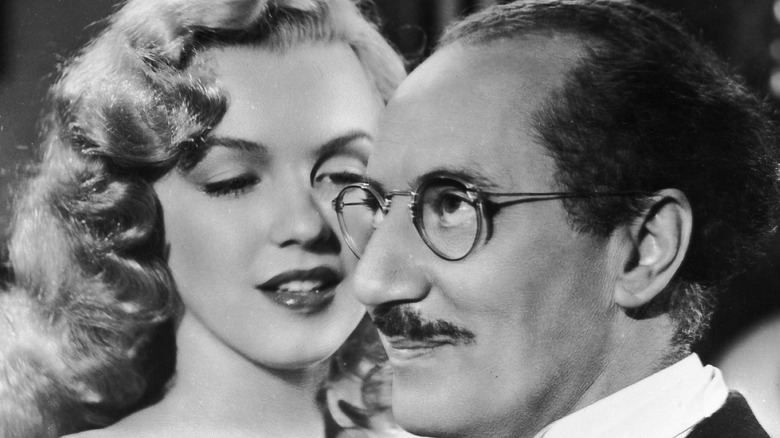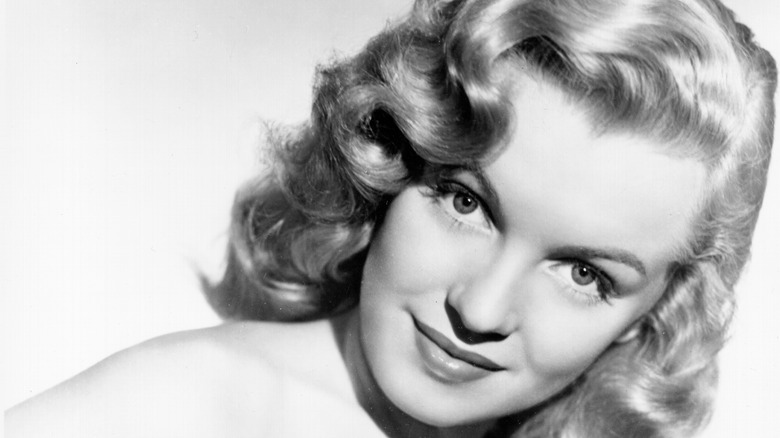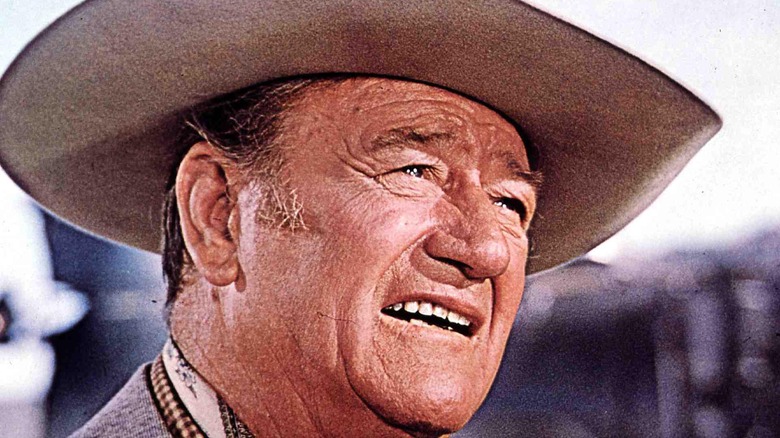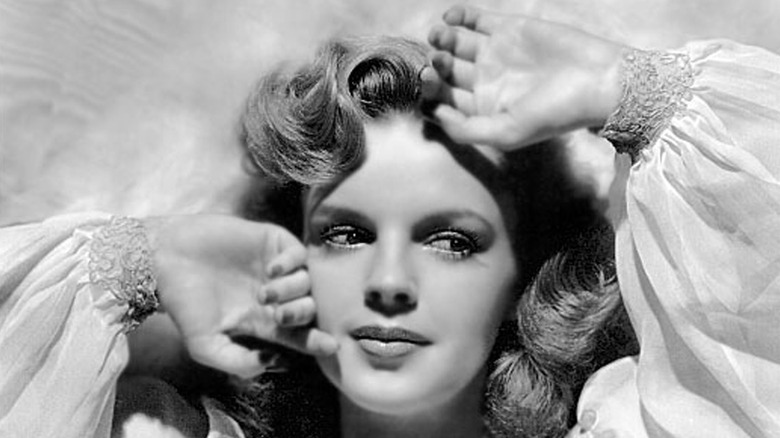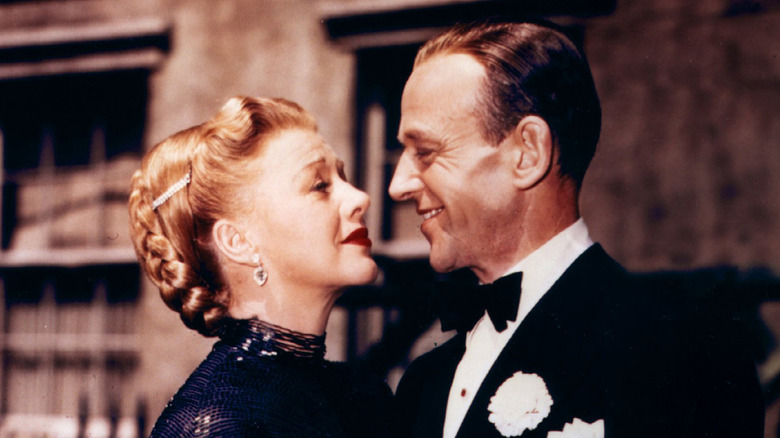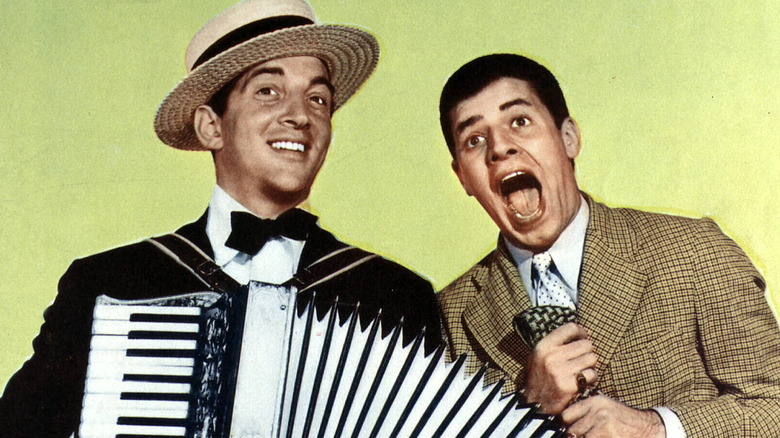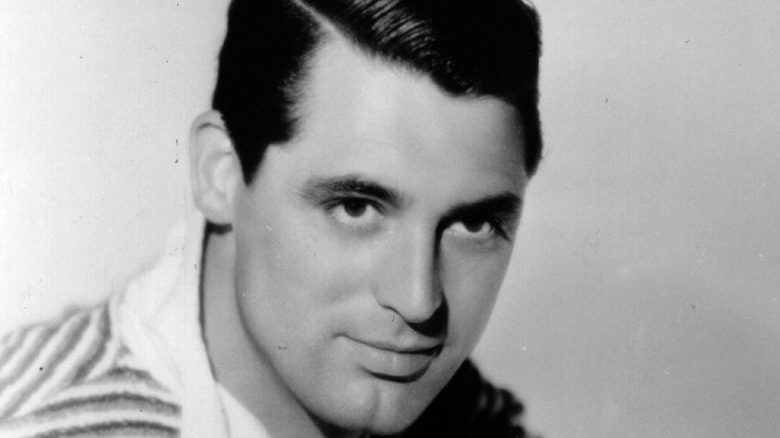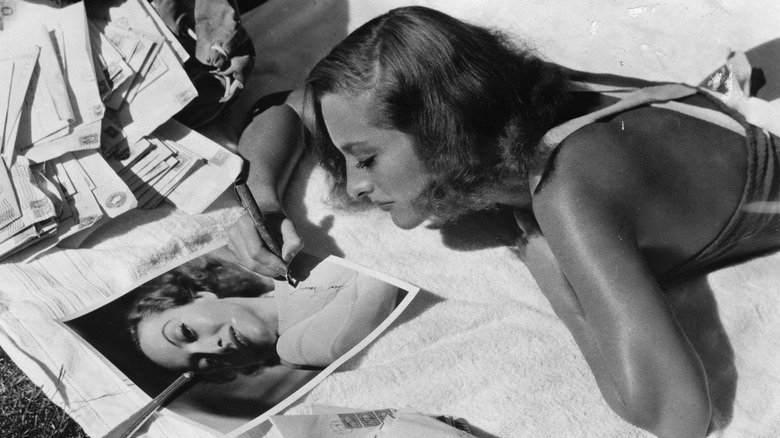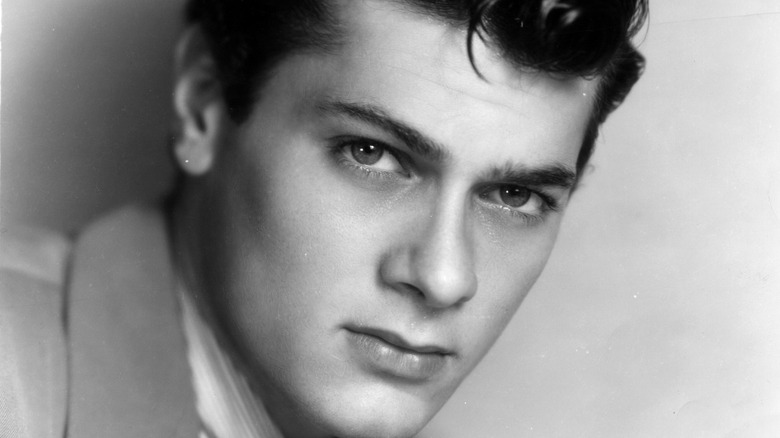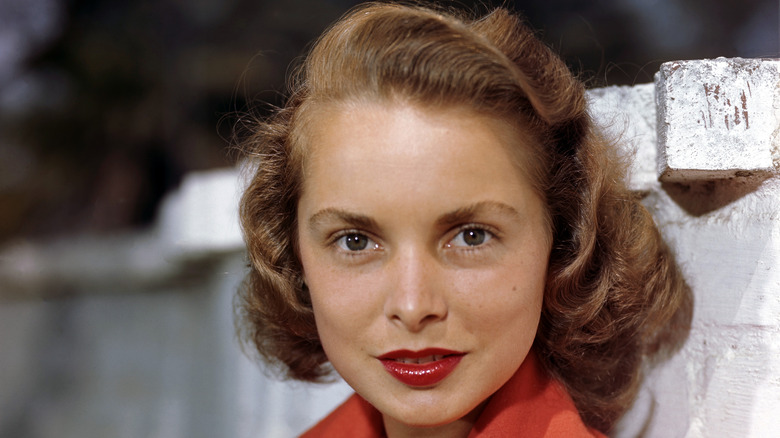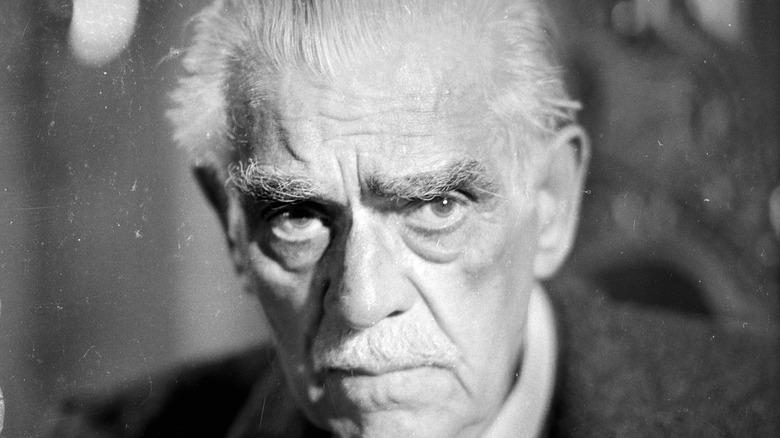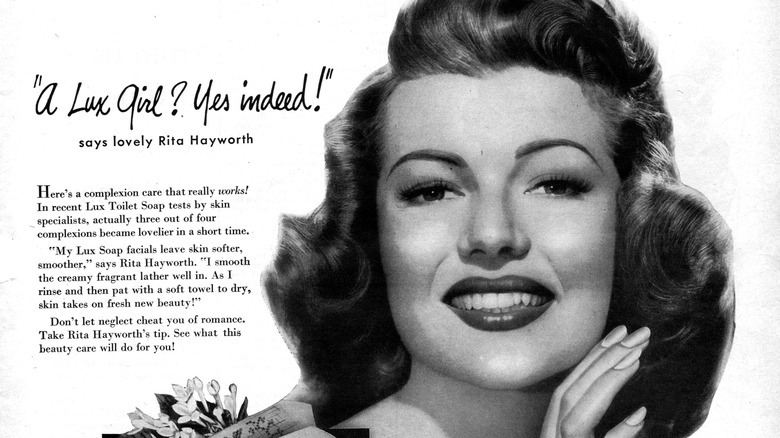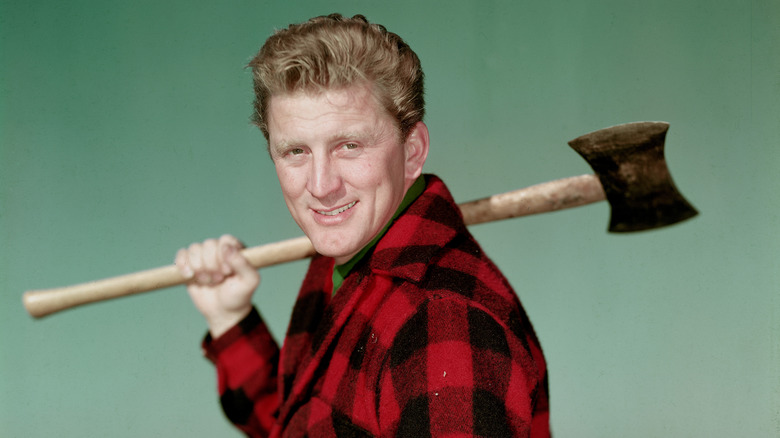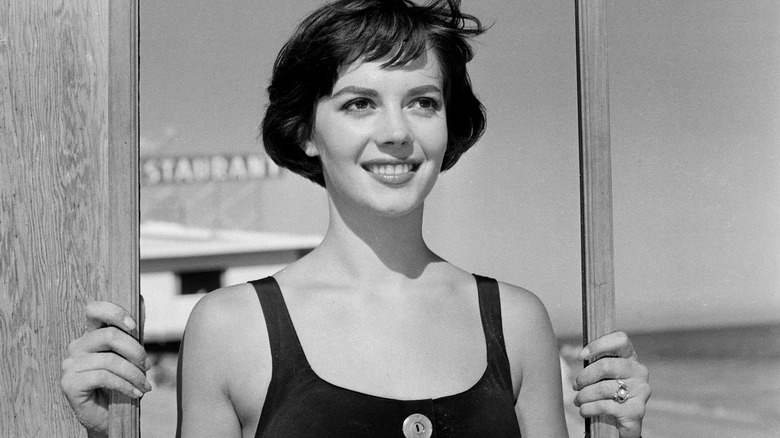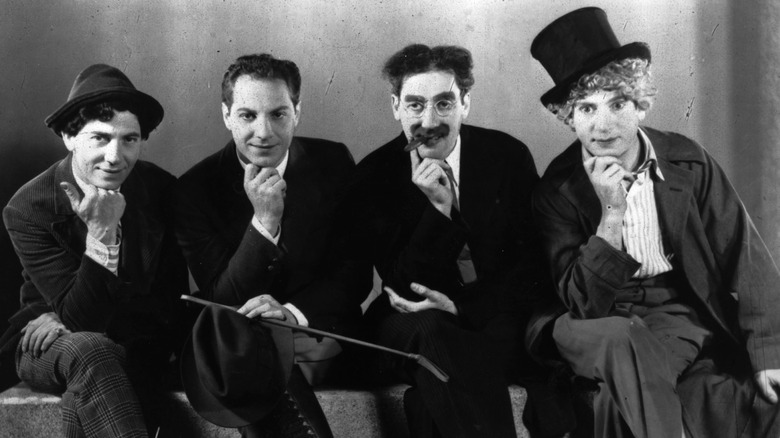Hollywood Stars' Real Names Explained
Since the dawn of Hollywood, actors' names have shined bright on theater marquees, film trailers and posters, and the mouths and memories of moviegoers. Yet, many of those actors' names were not the ones they came into this world with. Perhaps a pseudonym was necessary, in order to turn an average Julius into a superstar Groucho.
The reasoning for name changes are endless — to simplify a longer birth name, to Americanize a more ethnic one, or to even hide one's own religion. How the stage names have been chosen come in all different ways too, from a naming contest in a magazine, to the only book an actor had read, to even a game of poker where cards and nicknames were dealt by the same dealer.
Would some talented actors be as famous as they became had they kept their original name? Did some regret changing their name (or having it changed for them by studio execs)? Looking back on vintage articles and biographies, let's examine some legendary Hollywood stars who went through the moniker transformation, and explore how they went from their real names to their reel names.
Marilyn Monroe = Norma Jeane Baker
"I was born according to the records (and my birth certificate) Norma Jeane Mortenson," Marilyn Monroe would later say. "My father wasn't married to my mother when I was born. In fact he left my mother when he heard I was on the way. His name: Stanley Gifford. I was their love child. He told my mother that she should be glad she was married to Ed Mortenson — at least she could give the baby his name."
According to her half-sister Berniece Baker Miracle, their film cutter mother, Gladys Pearl Baker (née Monroe), named her after the actresses Norma Talmadge and Jean Harlow. Six months after her birth, she was baptized Norma Jeane Baker.
At age 16, she married her 21-year-old next door neighbor James Dougherty, and took his last name. For some modeling gigs, she would have the "e" in "Jean" dropped, or use the name Jean Norman, and for some racier photographs, embodied Mona (her niece's name) Monroe. In 1946, she walked into the office of 20th Century Fox talent director Ben Lyon, who reportedly exclaimed, "It's Jean Harlow all over again!" (he was Harlow's one-time co-star). She landed a contract with Fox and Lyon and Norma worked on her stage name. They considered "Carol Lind" and "Clare Norman," but then Lyon came up with the idea of using the name of someone he was once engaged to – Marilyn Miller, and said to her "To me you're a Marilyn." Marilyn recalled in an interview, "I asked them please could I keep my mother's maiden name, which was Monroe; so the choice was whether to call me Jean Monroe or Marilyn Monroe, and Marilyn won." Goodbye, Norma Jeane, and "thanks and love forever, Marilyn."
Marilyn died of an overdose on August 4, 1962. The name on her death certificate was the one she and Ben Lyon invented.
John Wayne = Marion Robert Morrison
Marion Robert "Bobby" Morrison was named after both of his grandfathers, Marion Mitchell Morrison and Robert Emmett Brown. When Marion's baby brother was born, his mother Molly named him Robert Emmett, and Marion then became Marion Mitchell Morrison.
The Morrison family's Airedale terrier was named "Big Duke" (an homage after Tom Mix's dog). When young Marion would swing by the local fire station to pick up "Big Duke," the fireman referred to him as "Little Duke." He eventually shortened that nickname to just "Duke," and preferred to be called that over Marion. So, like Indiana Jones, he became named after the family dog.
The Duke began working in the film industry in the prop department and playing big parts. One day, director Raoul Walsh was looking to replace Gary Cooper for 1930's "The Big Trail," and was taken by the image of Marion hoisting a chair over one shoulder and hired him for the lead in the film. Walsh helped to give birth to Marion's new name, inspired in part by revolutionary war hero "Mad" Anthony Wayne, although he and studio's head of production, Winfield Sheehan, thought the first name sounded too Italian. They went with John over Anthony, and some have posited that it may have been in honor of the director who helped jumpstart his career, John Ford. The Duke later said, "Nobody even calls me John. It's a name that goes well together and it's like one word—John Wayne." Studio bios from the 1930s at Fox and Columbia mistakenly gave him the middle name "Michael," but he ran with it, as "it was as good a middle name as any. So I took it."
Although not born John Wayne, that didn't keep Marion Robert Morrison (still his legal name) from trying to stop one Wayne Johns from using the name John Wayne Realty and Investment Co.
Judy Garland = Frances Ethel Gumm
Somewhere over the rainbow, in Grand Rapids, Minnesota, one Frances Ethel Gumm was born on June 10, 1922. She was named for her father Francis (who went by "Frank") and her mother Ethel. The two Gumm parents once had a singing and piano act that went by the name Jack and Virginia Lee. When they settled down, Frank owned a movie theater, where Frances made her stage debut at age 2.
Along with her two older siblings, Virginia and Mary Jane, they followed in the family tradition and formed a singing group called The Gumm Sisters. Due to a misprint — "The Glumm Sisters" — their vaudeville partner George Jessel told them that the surname "is too much like Crumb, Dumb or Bum. I'm going to name you after a good friend of mine, a dramatic critic, Robert Garland." Frances acquired her new first name from the Hoagy Carmichael song "Judy." Garland later said, "At first my family continued to call me 'Baby,' my name since infancy, but I wouldn't answer until they said 'Judy,' and in about three weeks they gave up. Inside of a year, people in Hollywood were even addressing my mother as Mrs. Garland."
A star was born, who would go on to headline 1939's "The Wizard of Oz," for which she would be honored with an Academy Juvenile Award the following year. She would later be nominated for 1955's "A Star Is Born" and 1962's "Judgment at Nuremberg." Garland died in 1969.
Fred Astaire and Ginger Rogers = Frederick Austerlitz and Virginia Katherine McMath
Fredrick Austerlitz and Virginia Katherine McMath were one of cinema's greatest dancing duos, dancing cheek to cheek in 10 films together. As the old saying goes: "Sure he was great, but don't forget that she did everything he did ... backwards and in high heels."
Fredrick Austerlitz was named after his Austrian beer brewing father Friedrich. His mother Ann was eager to get out of Omaha, Nebraska and took Freddie and his older sister Adele to New York in 1905 to launch their careers. Under the tutelage of dance instructor Claude Alvienne, the sister-brother act thrived, but all agreed a new last name was needed. Names such as "Auster," "Astier," Astare," and "Astair" were bandied about, but they didn't want the name to sound foreign (like "Austerlitz" did, which was the name of a famous Napoleonic battle from 1805). They settled on "Astaire," which to Alvienne, reminded him of the goddess of productive energy, Astarte. Fred Astaire believed that the surname may have come from an uncle on his mother's side from Alsace-Lorraine – L'astaire.
Virginia Katherine McMath was named after her mother Lela's sister Verda Virginia. Her nickname came thanks to her young first cousin Helen, who couldn't say words with a "V." Virginia came out as "Ba-din-da," and Helen worked on it where it became "Dinda," then "Ginga." "She finally got it to its present sound," Rogers would later recall in an interview. "So ever since then I've officially been 'Ginger.'" After her mother separated from her father William Eddins (who then subsequently kidnapped Virginia), Lela met and married John Logan Rogers. Ginger called him "Daddy John," and "though he did not adopt me, it was natural for me to use his name."
Ginger Rogers moved on from dancing to tackle more serious film roles and won an Academy Award for 1940's "Kitty Foyle." A decade later, Rogers presented an honorary Academy Award to her former partner, and said Astaire "not only dignified dancing, as far as I'm concerned, he invented it."
Dean Martin and Jerry Lewis = Dino Crocetti and Jerome Joseph Levitch
Dino Crocetti and Jerome Levitch met on a New York City street corner in 1945, and a year later formed a comedy act that went on to become one of the most famous duos of the 20th century. Over a single decade, the "handsome crooner" and "skinny monkey" slayed audiences on stage and on screen, including 16 feature films, before breaking up and not speaking for decades.
Gaetano Crocetti hailed from Abruzzi, Italy and made his way to Steubenville, Ohio, where he became "Guy." His son was born prematurely in June of 1917, and the boy was not christened until that fall — Dino Paul. Dino dropped out of high school then ran the gamut of odd jobs, from working in a steel mill, to boxing as "Kid Crochet," to working in speakeasies and illegal casinos. He also had a golden voice, and when Columbus bandleader Ernie McKay tapped Dino to be his lead singer, he gave him a new name for his debut in 1939, Dino Martini, a nod to Italian crooner Nino Martini. Cleveland bandleader Sammy Watkins was the next to hire Dino in 1940, but he didn't like his Italian sounding name, so he changed it to Dean Martin. Long after Dean Martin was a household name, he played "Dino," a boozy singer in Billy Wilder's 1964 film "Kiss Me, Stupid."
Danny and Rae Levitch of Newark, New Jersey performed in vaudeville and the Borscht Belt circuit under the last name Lewis. When their only child Jerome joined the family funny business at age 5, it was only natural that he would take their stage last name as well. "How could anyone called Levitch get laughs?," he would joke years later. While Jerome was mostly known as Joseph or Joey, he didn't want to be confused with comic Joe E. Lewis or boxer Joe Louis, so Jerry Lewis he became, and Dean Martin became the big brother he never had.
Cary Grant = Archibald Alexander Leach
Archibald Alexander Leach described his north by northwesterly career journey as such, "My grandfather was an actor in England, and I ran away from home when I was 12 and became an acrobat." Later he left his native Bristol, England for America where he "did a stilt-walking stunt at Coney Island advertising somebody's hot dogs." He honed his acting skills, hit Broadway, and eventually landed a screen test at Paramount Pictures.
"They demanded that I get a new name. It seemed that Archie Leach, or even Archibald Leach, might do well enough for the merry-merry, but it lacked dignity for the films," he told the Oakland Tribune in 1933. "Since they were paying the bills, who was I to argue about such a non-essential as a name." Paramount executive B.P. Schulberg wanted Archie's new stage name to be something along the lines of Gary Cooper. Leach's former "Nikki" co-star Fay Wray suggested he take the name of his last role in their 1931 Broadway flop, Cary Lockwood. Schulberg liked the first name, since it was close to Gary, but not the last, as there was another Lockwood under contract with the studio. So they handed him a list of pre-approved, shorter last names, and Cary later said, "'Grant' fell out of the skies."
Cary Grant went on to become one of the most beloved and debonair actors of his generation, albeit one who never lost his affinity for his true name. He named his Sealyham terrier Archie Leach (a breed of dog also enjoyed by his frequent director Alfred Hitchcock), and would drop a tribute to his old self with an ad-libbed line in "His Girl Friday," "Listen, the last man that said that to me was Archie Leach just a week before he cut his throat."
Grant was such a larger-than-life figure that John Cleese played tribute to him in "A Fish Called Wanda," playing barrister ... Archie Leach.
Joan Crawford = Lucille Fay LeSueur
"LUCILLE LESUEUR," read the telegram. "YOU HAVE BEEN PLACED UNDER CONTRACT MGM STUDIO [STOP] SIX MONTH OPTION STOP SEVENTY FIVE DOLLARS A WEEK [STOP] LEAVE IMMEDIATELY FOR CALIFORNIA [STOP]
17 years before she left immediately for California, Lucille Fay was born to Anna and French-Canadian Thomas LeSueur. Thomas abandoned the family and her mother fell for and married Henry Cassin. Her stepfather's nickname was Billy, and as a tomboy in her youth, she earned the same nickname and was known as Billie Cassin.
Years later, after arriving in Hollywood, she was cast in the 1925 silent film "Sally, Irene and Mary." For Lucille/Billie, the film "was the beginning of my new life, and my new name." Pete Smith, MGM's publicity chief apparently told his boss Louis B. Mayer that her real last name "sounds too much like 'LeSewer.' The studio sponsored a contest in "Movie Weekly" to come up with a name that Lucille personally asked to be "easy to pronounce and spell, and easy to remember. Of course it must be a pretty name as well." The winning name was Joan Arden, but an extra on the studio lot had the same name, so then they turned to the runner-up option, a "name I love now but hated then." "Crawford, Crawford, it sounds like Crawfish" Joan Crawford "mourned" at the christening of her new name. Her actor friend William Haines said "you're lucky it isn't 'Cranberry'" and that became his nickname for her evermore.
Married four times, she also went by the names Joan Crawford Fairbanks, Jr., Joan Crawford Tone, Joan Crawford Terry, and lastly, Joan Crawford Steele.
Her brother Hal had an acting career and used his birth last name, albeit with a space between "Le" and "Sueur."
Tony Curtis = Bernard Schwartz
"My parents met each other while they were both in the process of inventing themselves," Kelly Curtis, the daughter of Tony, would later remember. "It was Bernie Schwartz meeting Jeanette Morrison, and then Tony Curtis meeting Janet Leigh."
Bernard Schwartz was born to emigrants parents in New York City in 1925. His comedian friend Larry Storch used to call him "Bermuda Schwartz." When he met Jack Warner (Bros.), he told him that "I'll change your name to Tyrone Goldfarb and make you a star all over the world!" While in the Navy, Bernie read a single book, "Anthony Adverse," and when pursuing an acting career decided to call himself that. A casting director noted someone else used that name, "So I kept the Anthony, and I added Curtis; I had a relative, Janush Kertiz, whom I liked very much, so I took his last name for mine. Kertiz is actually a very common Hungarian name. What a perfect name that is, I thought to myself: Tony Curtis. I had wanted a name that was a little mysterious, and this seemed just right." Curtis once confused a reporter asking about his origins, and told him he was the "illegitimate son of the second Duke of Marlborough," with the last name Skeffington.
Tony "met" future wife Janet Leigh (see below) at an RKO publicity party, and from the marriage that spanned 1951-1962, they produced two daughters (the other being Jamie Lee Curtis), and starred in 6 feature films together (and one Jerome Levitch-directed short that predates that RKO party).
Janet Leigh = Jeanette Morrison
Jeanette Helen Morrison (Helen was her mother's name) was discovered by Norma Shearer when she saw Jeanette's picture displayed at the ski resort her parents worked at. Her first film was 1947's "The Romance of Rosy Ridge," where her co-star Van Johnson helped concoct her screen name. He shortened her first to Janet, and since the movie was Civil War-themed, Johnson thought of General Robert E. Lee, but gave her last name the spelling Leigh.
Janet worried about offending the established actress Vivien Leigh, and years later asked her husband Sir Laurence Olivier about it, to which he replied, "She did believe it presumptuous, when first notified. However, she soon rallied and recognized no one has a monopoly on a name." MGM boss Louis B. Mayer had second thoughts about the name as well, briefly dubbing her Jean Morrison, before Van Johnson fought to return it to the one he dreamed up.
Prior to her marriage to Tony Curtis (see above), she was married to Stanley Reames and went by Jeanette Morrison Reames. When she married her final husband, Robert Brandt, she took the legal name that she would carry for the rest of her life — Janet Leigh Brandt.
15 years into her career, Janet said "Hollywood hasn't cost me my identity. I'm still Jeanette Morrison."
Boris Karloff = William Henry Pratt
"My childhood as William Henry Pratt in the serene London suburb of Enfield was extraordinarily tame," Karloff would recall in 1962. "Both my parents died during my childhood. I was reared by one amiable stepsister and seven stern older brothers, who knew exactly what I was going to be — a government servant in the family tradition." One of Billy's brothers did not serve, and was, for a time, a stage actor that went by the name George Marlowe. With an interest in drama, and encouraged by George, young Billy sought to become a performer himself.
Billy Pratt left England for Canada, and in 1911, while chopping trees, was contacted by a theatrical agent to join him in Kamloops, British Columbia. He left his ax sticking in a tree and started his path to destiny. On that train, "I cast around for a name because I felt the name Pratt was not the best stage name one could choose. I remembered the name Karloff, which was on my mother's side, though so far back it didn't make any sense. I took the Boris out of the air, put them together, and I must say the combination has been extremely lucky for me." In Cynthia Lindsay's biography, "Dear Boris: The Life of William Henry Pratt A.K.A. Boris Karloff," she researched three generations back into Pratt's lineage and could not find anyone with the name "Karloff." She did find, however, a name that might or might not have been an inspiration, but lived in Bombay when his mother did — Lazarus Kholoff.
Karloff would make his film debut eight years later in the silent era, and would reach immortality by playing the Monster (a role Bela Lugosi turned down) in 1931's "Frankenstein." He would go on to play many other spooky characters thereafter, which prompted him to say, "It is not true that I was born a monster. Hollywood made me one."
Rita Hayworth = Margarita Cansino
Margarita Carmen Cansino had quite the entertainment pedigree on both branches of her family tree. On her mother Volga's side, she was related to the Shakespearean actor Joseph Haworth, who was a contemporary of Edwin "John Wilkes' brother" Booth. Her father Eduardo was the son of the famous Spanish dancer and teacher Antonio Cansino, who helped to popularize the bolero. Volga and Eduardo were vaudeville dancers, but when they welcomed children and the mother focused on them, before the kin eventually joined the family act.
The dancing Margarita caught the film world's attention, and with the shortened name Rita Cansino, she had bit parts in ten Fox Film Corporation movies. After spinning her wheels/legs without much success, promoter and future first husband Edward Judson set about to remake her image. She was signed by Columbia Pictures head Harry Cohn, who thought her name was "too ... well ... Spanish sounding." Rita agreed, "that's one reason I changed my name ... I didn't want to only be known as a dancer." She stuck with Rita, but turned to her mother's maiden name, Hayworth and Rita Hayworth was born (there are claims Cohn added a "y" to "Haworth,: but her mother's maiden name was already "Hayworth"). From there on out, her career was a "Gilda"-ed one, even going toe-to-toe with Frederick Austerlitz (see above), as Hayworth herself admitted, "After I changed my name, the quality of roles offered to me improved greatly."
After calling it quits as Mrs. Rita Judson, she married Orson Welles ("It's the first time I knew a way to a girl's heart was by sawing her in half," he'd say), and used his last name occasionally. Three more husbands followed, with short shelf lives, becoming royalty as "Princess Aly Kahn", then marrying crooner Dick Haymes and remarking that is sounded "so wonderful to be called Mrs. Haymes," and finally wedding producer James Hill, but was only dubbed Mrs. Hill by the papers.
While "Rita Hayworth" was not the name her parents bestowed upon, that didn't stop the starlet from considering suing a singer who was born as Rita Haywood.
Kirk Douglas = Issur Danielovitch
He may have been "Spartacus," but as he'd later admit, "my real name is Issur Danielovitch."
When Issur's parents escaped the pogroms of Russia and arrived in America, they changed their last name from "Danielovitch" (son of Daniel) to "Dempsky," to match the surname of his already settled and assimilated Uncle Avram. When he went to school, his new name became Isadore, "which I have always hated," and started going by the nickname Izzy. He once had a vivid dream where Izzy taunted Issur.
When he went to college, Izzy Dempsky acted upon his acting ambitions. "During one summer vacation I worked at a summer stock playhouse [Tamarack] with Karl Malden (after he changed his name [from Mladen George Sekulovich]). He and the rest of the players debated what my name should be. I suggested Ivan Daniels, using the initials of my original name. They disagreed; they thought it should be a simple last name and an usual first name. The director of our group blurted out 'Kirk Douglas.' We all liked that name." When he got to New York that fall, he legally changed his name to that "Scottish" sounding one. While he faced prejudice for his religion early on in his life, he saw an even uglier side when, as "Kirk," people didn't realize he was Jewish. "Now that I have a WASP name, I was introduced to another level of anti-Semitism."
Later in life, he regretted his name change, "I feel sorry for Issur. He never got a chance to have his say. If I had become a ballet dancer, my name would have been perfect." Adding "I wish I had kept it. It's more interesting to keep your original name. But can you imagine that name on a marquee?"
Kirk's son Michael (who would later work with family friend Karl Malden) also ran into his own name issues. Mike Douglas was a moniker already claimed by a singer and entertainer born Mike Dowd (Kirk and Michael once appeared on his talk show). Then when an actual Michael Douglas joined the acting industry, that thespian had to change his name to Michael Keaton.
Natalie Wood = Natalia Nikolaevna Zakharenko
Maria Stepanovna Zudilova had her fortune read by a Harbin gypsy, who warned to "beware of dark water," and predicted that her second born child "would be a great beauty, known throughout the world." She set off to America to hopefully make one of these prophecies come true, while avoiding the other.
Before her second child was born, Maria made a rich and childless couple, Theodore and Helen Loy, its godparents. Helen chose the baby's name, Natalia, in honor of a friend's daughter. Natalia Nikolaevna Zakharenko was born on July 20, 1938, although her birth certificate listed her as "Natalie," and she was affectionately called "Natasha." When she was one, her father Nikolai got the family out of the end of the alphabet to improve job prospects by changing the surname from "Zakharenko" to Gurdin."
"God created her, but I invented her," said Maria, who pushed young Natasha Gurdin into stardom. The film "Happy Land" was filming nearby and they caught the attention of director Irving Pichel, who gave Natasha her first role. Later, Pichel helped her land a movie contract at age 6. Producers William Goetz and Leo Spitz thought her name was too ethnic, so they Americanized Natasha to Natalie and came up with "Wood" as a tribute to their director friend, Sam Wood. Natasha "hated it," and wanted to add an 's' to the end so she could "think of trees and forests." Her naming even got territorial between Goetz and Natasha's father at her 26th birthday party. Natasha's younger sister Svetlana joined the industry with the stage name of Lana Lisa Wood, named after "Lana Turner, who was my favorite movie star at the time."
Natalie married actor Robert Wagner twice, and to signify this, got a vanity plate to reflect her double ascendancy to Mrs. Natalie Wood Wagner: NWW NWW. In between her two Wagner marriages, she wed British talent agent Richard Gregson, which produced a daughter, Natasha Gregson Wagner (an actress in films like "Buffy the Vampire Slayer" and "High Fidelity"). In her daughter's biography she wrote, "She always missed her first name — this was why she eventually named me Natasha."
While the papers hailed the second coming of Wagner-Woods as "smooth sailing," Natalie tragically died in 1981 of her mother's forsaken worst fear, by drowning — although the circumstances of exactly how remain a mystery to this day.
Chico, Harpo, Groucho, Gummo and Zeppo Marx = Leonard, Adolph/Arthur, Julius, Milton, and Herbert Marx
Simon Marrix came to America and shortened his name to Sam Marx. His future wife, who he met when he was her dance teacher, went from Minna to Minnie (after Broadway star Minnie Madern). She gave birth to six Marx boys, although the first, Manfred, died in infancy. Leonard "Leo" Joseph came next, followed by Adolph (later became Arthur, to avoid comparison to Adolph Marks, not Hitler), Julius Henry (named after two uncles, the first, to curry favor with and hopefully be named in his will – but later died and left behind "a billiard ball, a bullhorn and a couple of other worthless things"), Milton and Herbert Manfred (in memory of his deceased brother).
Minnie's brother Adolph Schoenberg was a vaudeville performer that went by the name Al Shean. Shean was a big influence on the boys, and helped to hone their singing and comedy act. Minnie was the brothers' Marx agent, and booked them for a week of shows in Galesburg, Illinois, in 1914. It was there that they would meet monologist Art Fisher. Julius said, Fisher "was in the habit of giving people nicknames, and they stuck."
While dealing cards, Fisher dealt the boys nicknames too, in the vein of the popular comic strip "Knocko the Monk," which resulted in a "rash of stage names that ended in 'o.'" Milton later recalled, "He named me Gummo because I had holes in my shoes, and I'd wear gumshoes over them even when it wasn't raining. Chico was Chico because he chased the chicks; Harpo, because he played the harp." Where Groucho's name originated from is up for debate — there was the comic strip "Groucho the Monk," or perhaps it was because Julius "was stern and rather serious," or his brother's theory that he was named after a grouch bag.
"We used to wear a little bag around our neck, called a Grouch bag," Chico told BBC TV's Showtime in 1959. "In this bag we would keep our pennies, some marbles, a couple of pieces of candy, a little marijuana, whatever we could get."
When Gummo left the group for the army, youngest brother Herbie joined and the brothers gave him the name "Zippo," after the famed performing monkey. He found the name "very unflattering, and he insisted on spelling his stage name 'Zeppo.'"
As Harpo would later recall, in a rare moment of verbosity: "You never could tell what you might be dealt in a poker game in those days."
